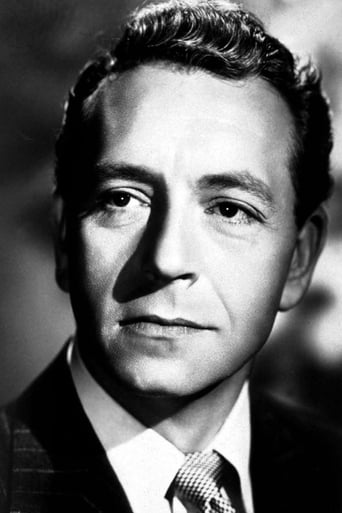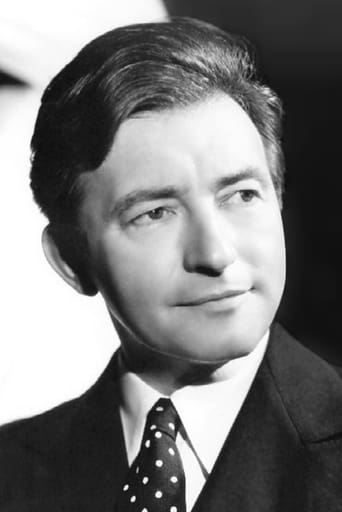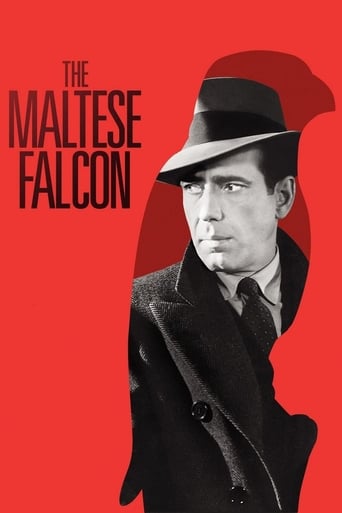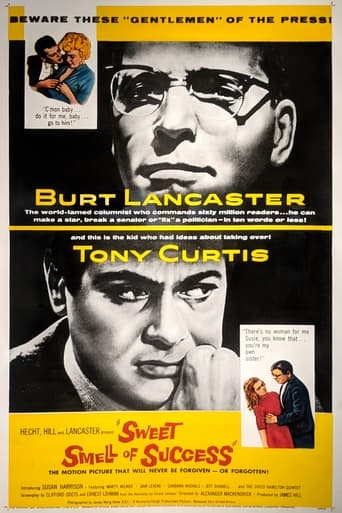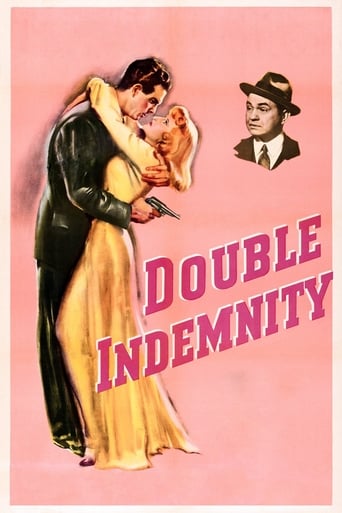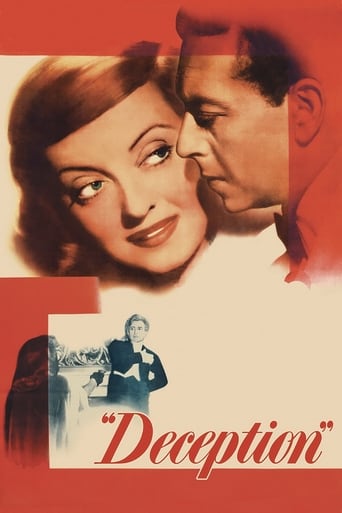
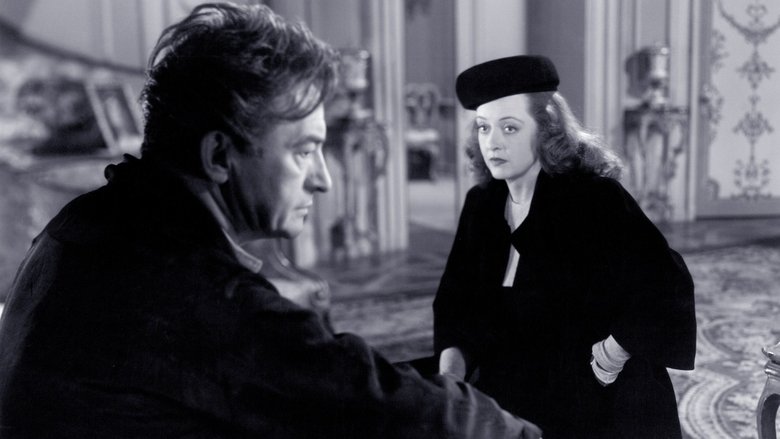
Deception (1946)
After marrying her long lost love, a pianist finds the relationship threatened by a wealthy composer who is besotted with her.
Watch Trailer
Cast


Similar titles
Reviews
One doesn't know that "Deception" is a crime film, without the billing, just by watching it – until the end. Then it looms big, not only with a murder, but with a fallen hero who helps the "villain" plot to cover it up. Such is the conclusion of this Warner Brothers drama that stars Bette Davis, Paul Henreid and Claude Rains, in that order. All give very good performances, matching their skills with the characters of their roles. But, I think Claude Rains stands out in his role as Alexander Hollenius. His portrayal of a renowned music composer and conductor runs a range of displays and emotions. He is angry and jealous. He is bitter and revengeful. He is calm and collected. He is clever and cunning. He is spiteful and poised. He is mean and insulting. He is vain, arrogant and conceited. Amidst all of this, he portrays a sense of musical mastery, creativity and genius. His scene conducting an orchestra is excellent. His fetishes about food and perfectionism in details of his life style are annoying to all but himself. Rains plays the character perfectly. And, with his narcissistic and self-indulgent lifestyle, he shows simple wisdom and understanding of deceit and what it means. Bette Davis plays the part of Christine Radcliffe very well, and she runs a gamut of emotions. It is a persona that is standard Bette Davis for most of her work in her career. Her character here doesn't realize the death trap she sets by her deception. Although, toward the end she admits that she has lied and that it led to her worse sins. Paul Henreid is Karel Novak, Christine's long lost love from the war in Europe. It's never clear why he was lost. Did he serve in the military and spend time in a POW camp? Or was he wounded and lost in a hospital somewhere? Perhaps he had been in a concentration camp and tortured? The only slight clue is a line he says to the effect that they wanted me to play but I wouldn't do it. That makes one think he was a POW or concentration camp inmate. We only know from Christine's constant reminder that he suffered a lot and was a beaten man. This film has nice doses of classical music, with all three lead characters playing some pieces. I've purposefully left out the details of the plot for anyone who hasn't yet seen the film and would like to do so. Knowing those in advance would have spoiled the suspense and depth of the plot for me. This is a very good drama that has a message about truth and honesty. Lies aren't good, and they don't work out well. But, even if one seems to for a while, only the deceiver is deceived into thinking he or she will be better off or happy by a cover up. While the truth may hurt at times, it's the only way to live with any certainty of trust and happiness. To lie once is to start down a slippery slope that leads to unhappiness.One scene without a line of dialog gives a clue that Christine has succumbed to her own downfall, and won't change. After she confronts Alex in his home, she throws the mink coat he bought her at him, and says she wished she hadn't met him a few years ago. But after their argument, she picks the coat up and puts it on as she leaves. Rains received an Oscar nomination in 1946 for another supporting role – in "Notorious." I think his role here was as good or better and should have provided another nomination. This role may be the best supporting role of any film that year. The winner was likely chosen with considerable sentimentality. Harold Russell was a WW II Navy veteran double amputee, and he won the 1946 Oscar for best supporting actor for his role in "The Best Years of Our Lives."Rains was a gifted actor who had many fine leading and supporting roles over a distinguished Hollywood career. All of his films were hits. And, although he received four Academy Award nominations, he never won an Oscar. Yet, he will likely be remembered longer in film history that many other actors who have won Oscars. And, not for his collected body of work, but for just a single film – "Casablanca." He played one of his Oscar-nominated roles as Capt. Louis Renault. His was "the start of a lasting friendship" with Humphrey Bogart's Rick Blaine.Here are a few poignant lines from this fine crime drama. Christine, "Oh, Alex, if only I could believe you." Alex, "That is a luxury beyond your present means, my dear. If you want to believe other people, you better give up lying yourself."Alex, "Extraordinary how people try to keep their little secrets which can never be kept. Oh, but of course, you think they can, don't you? Well, you'll find out."Christine, "You must promise me." Alex, "Could you believe me if I promised?"
What can you say about something this flabbergasting? If your film preferences run toward the preposterous, camp, or 'silliest plots', then this is assuredly for you! Warner Bros gave it the full treatment, Production values ~ Performers ~ Photography ~ Music, all first quality and all wrapped up in unbelievable mush. Korngold's lush music score certainly deserved a better vehicle than this crazy story. Oscar winning Photographer Ernst Haller, known for superb work in "Gone With the Wind", Jezebel", and two of my cinematic favorites: "Humoresque" and The Glass Menagerie" (among many)...with 'Deception', he works brilliantly alongside stylish English born Director Irving Rapper ~ together they give this way over-wrought story a great look, at times saving it, but never completely.It also looks as if home educated screenwriter John Collier, was well aware this story, based on Louis Verneuil's 'Monsieur Lamberthier' from the 1920s, was by this time, heading out of date. Collier, being a writer known for his slightly bizarre fantasy stories and poetry, must have been torn between treating it as black comedy (Verneuil was known for his comedies) or melodrama of the most strained kind.Claude Rains, while always impressive, must have been born for this role. His flamboyant turns are quite astounding to watch. It's easy to imagine him at home, chuckling out loud while reading such lines from his script. Take a close look at his characters 'abode', even Royalty could look out of place in this remarkable 'museum'. While the main leads are certainly excellent, it's his picture all the way. Don't watch if you want serious, classic 40's drama. If you're after unintentional laughs or simply good performances, then this could work quite well for you....The TCM print screened in Australia was fair only.
...Of Claude Rains' character in this picture. As has been stated, he is an older guy who loses out on Bette Davis to a younger guy. The younger guy is Paul Henreid playing a WWII survivor, thought dead by Davis. When she spots him at a concert in NYC years later, the handwriting is on the wall for Rains.The mise en scene is the world of classical music, about which I know little but which sounds, uh, classical in several pieces played during the film. Henreid plays a cellist, so the pieces for the cello leave me out completely. Rains is a master composer, a genius referred to by his last name, Hollenius, thereby cementing his genius label. Not only is he a genius, he is a vengeful genius.One does not often encounter such a high level of acting as that found in "Deception", and it elevates the film above the ordinary. All three principals are outstanding, especially Rains, whose performance towers over the other two. It is a character study and a straight drama. Speaking for myself I was not aware of any elements of 'noir', but if you are a fan of good acting, "Deception" is for you, as it is exceptional in this department.
Louis Verneuil's play "Monsieur Lambertheir", first filmed in 1929 as "Jealousy", became the last screen-teaming of Warners stars Bette Davis and Claude Rains; results are typically florid and predictably melodramatic. Paul Henreid is a European cellist who relocates to New York City after the war and is reunited with former flame Davis, a talented pianist; she quickly moves him into her luxurious apartment and marries him, forgetting to disclose that she has become the protégé (or rather, mistress) of a tyrannical, world-famous composer and conductor. The apparently-intimate relationship between Davis and the wittily snide Rains isn't disclosed in detail, but we are to assume he lavishes gifts upon her in the context of a sexual union (although there hardly seems to be any passionate energy between them, the writing being so frothy and hot-headed). Screenwriters John Collier and Joseph Than are far too wordy in their setting-up of what amounts to a maddeningly ineffectual plot. Somehow, between the classical music and the overheated performances, the picture is entertaining enough, but the old spark seems to be missing. Davis (pregnant in real-life) looks a bit haggard, and practically hands the film over to Rains, who is full of spite and malice. There are few principal supporting characters, and one eventually tires of the trio's tantrums. It's a fairly well-upholstered production, although literate in the sense that soap operas can be intelligent. Davis soon left Warner Bros., and one can see why: the magic is gone. ** from ****



